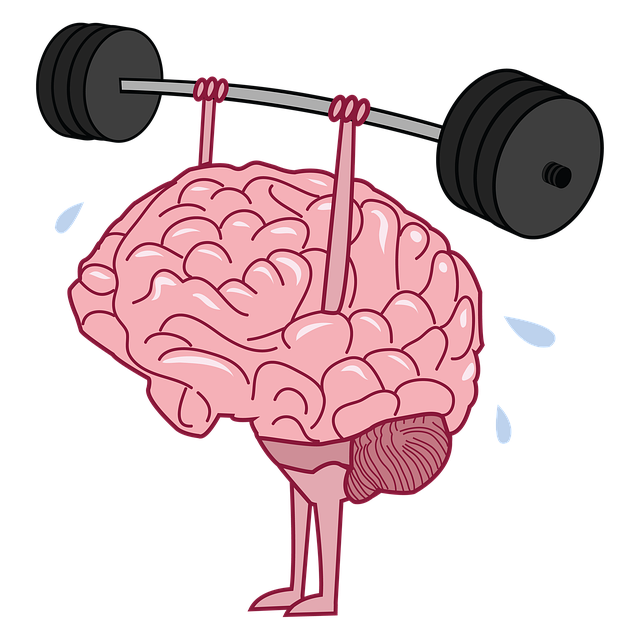Mental Health Advocacy is a powerful movement that aims to destigmatize mental health issues, improve access to care, and empower individuals through education and support. Castle Rock Eating Disorders Therapy leads this charge with specialized programs, like Mental Wellness Journaling, focusing on self-awareness and holistic healing. Their approach addresses societal pressures on body image, promotes stress management, and fosters long-term recovery. Global advocacy initiatives, featuring organizations such as Castle Rock, have seen success in raising mental health awareness and improving well-being through tailored programs combining professional support with self-care practices.
Mental health advocacy initiatives play a pivotal role in shaping society’s understanding and support for individuals grappling with mental health challenges. This article delves into the realm of advocacy, offering a comprehensive overview of its significance. We explore the specific contributions of Castle Rock Eating Disorders Therapy in advancing these causes. Furthermore, it provides practical strategies for effective mental health advocacy, highlights global success stories, and discusses future directions, emphasizing the ongoing need for widespread awareness and support.
- Understanding Mental Health Advocacy: A Comprehensive Overview
- The Role of Castle Rock Eating Disorders Therapy in Advocacy
- Strategies and Techniques for Effective Mental Health Advocacy Initiatives
- Global Impact: Success Stories and Future Directions in Mental Health Advocacy
Understanding Mental Health Advocacy: A Comprehensive Overview

Mental Health Advocacy is a powerful movement dedicated to raising awareness, promoting understanding, and fighting for improved access to care for individuals facing mental health challenges. It involves various initiatives aimed at challenging societal norms, reducing stigma, and ensuring everyone receives the support they need. At its core, advocacy seeks to empower those affected by mental illness, encouraging them to speak out and access treatment options like Castle Rock Eating Disorders Therapy.
This comprehensive approach includes education campaigns that target both general audiences and specific communities to dispel myths surrounding mental health. By fostering open conversations and sharing personal stories, advocates aim to boost confidence in seeking help and develop essential coping skills. In addition, advocacy groups actively engage in policy changes, pushing for better allocation of resources and more inclusive healthcare systems, thereby reducing barriers to care and improving the lives of those struggling with mental illness.
The Role of Castle Rock Eating Disorders Therapy in Advocacy

Castle Rock Eating Disorders Therapy plays a pivotal role in mental health advocacy by providing specialized care and support to individuals struggling with eating disorders. Their comprehensive approach goes beyond traditional therapy, incorporating various techniques like Mental Wellness Journaling Exercise Guidance to help clients develop self-awareness and coping strategies. By fostering an environment of understanding and acceptance, Castle Rock enables people to challenge societal pressures and internalized negative messages related to body image and food.
Through their Mental Wellness Coaching Programs Development, they empower individuals with the skills to navigate triggers and setbacks, promoting long-term recovery. Moreover, Castle Rock emphasizes holistic healing by addressing underlying issues contributing to eating disorders, including stress management techniques. This multi-faceted approach not only treats symptoms but also fosters resilience, ensuring individuals can thrive in a culture that often promotes unrealistic beauty standards.
Strategies and Techniques for Effective Mental Health Advocacy Initiatives

Mental health advocacy initiatives require a multifaceted approach to be truly effective. Firstly, Castle Rock Eating Disorders Therapy professionals should prioritize education and awareness campaigns to dispel myths and promote understanding of mental health issues. This can involve public talks, workshops, and collaborative efforts with schools, workplaces, and community groups. Engaging influencers and celebrities who have openly shared their mental health journeys can also amplify these messages.
Additionally, Risk Management Planning for Mental Health Professionals is crucial to ensure the well-being of advocates themselves. Implementing Burnout Prevention Strategies for Healthcare Providers, such as setting clear boundaries, encouraging self-care, and fostering a supportive work environment, will enable them to sustain their advocacy efforts over time. Incorporating Conflict Resolution Techniques into training programs can also help professionals navigate challenging conversations with clients, colleagues, or community members more effectively, thereby enhancing the overall impact of mental health advocacy initiatives.
Global Impact: Success Stories and Future Directions in Mental Health Advocacy

Mental health advocacy initiatives have made significant global impacts, with success stories emerging from various regions. These efforts have shed light on the importance of mental well-being and inspired positive changes in communities worldwide. For instance, organizations like Castle Rock Eating Disorders Therapy have pioneered specialized therapy programs, demonstrating that targeted interventions can lead to remarkable recovery rates. Their approach focuses not just on treating symptoms but also on fostering self-care routines for better mental health and mood management.
Looking ahead, future directions in mental health advocacy should build upon these successes by promoting integrated care models that combine professional support with self-care practices. Stress management strategies, tailored to individual needs, can empower individuals to take control of their mental well-being. By fostering open conversations, breaking down stigma, and implementing evidence-based interventions, we can ensure that everyone has access to the resources necessary for navigating life’s challenges with resilience and improved mood regulation.
Mental health advocacy initiatives, such as those supported by Castle Rock Eating Disorders Therapy, are vital in fostering global understanding and care. By employing effective strategies like community engagement, education, and policy reform, these efforts ensure that individuals worldwide receive the support they need for their mental well-being. As highlighted in various success stories, advocacy can lead to significant improvements in access to treatment, reduced stigma, and enhanced recovery outcomes. Looking ahead, continuing these initiatives with a focus on diverse communities is essential to create a more inclusive and supportive global landscape for mental health.














